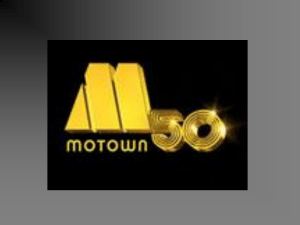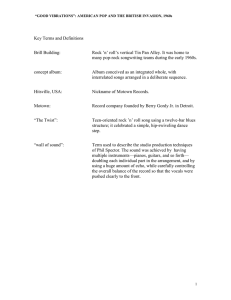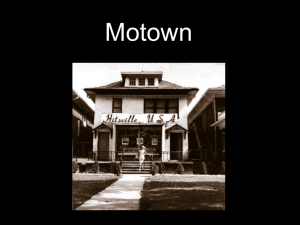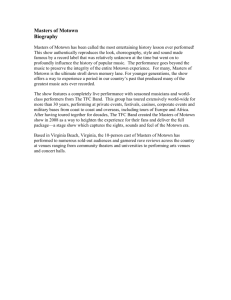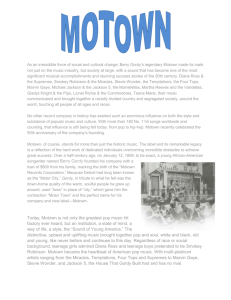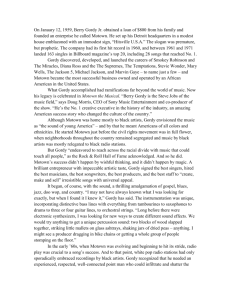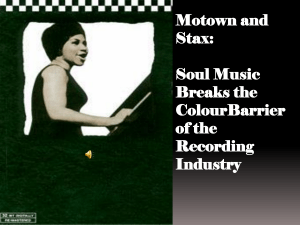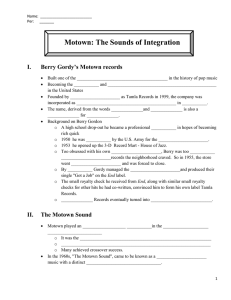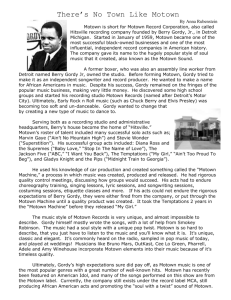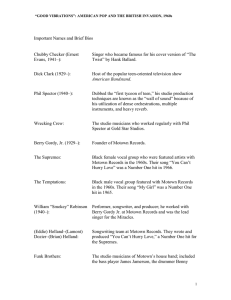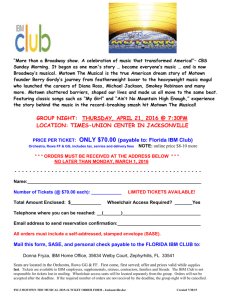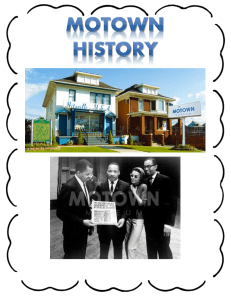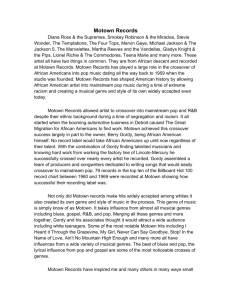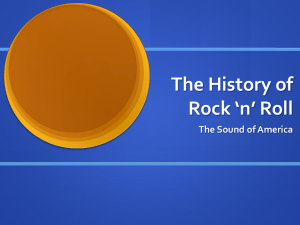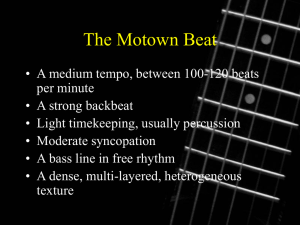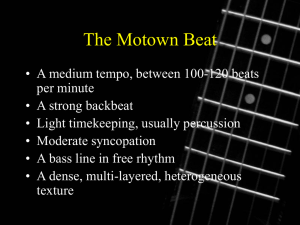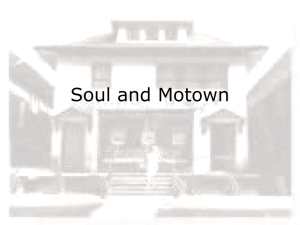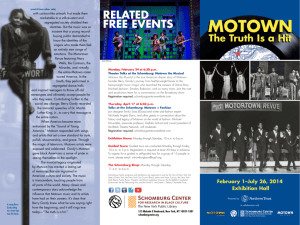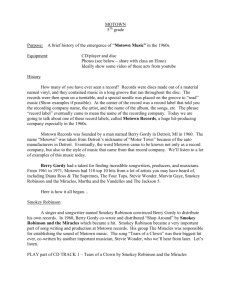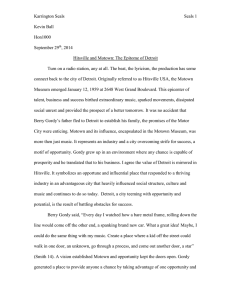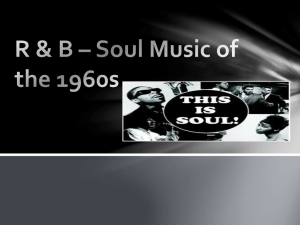MOTOWN
advertisement
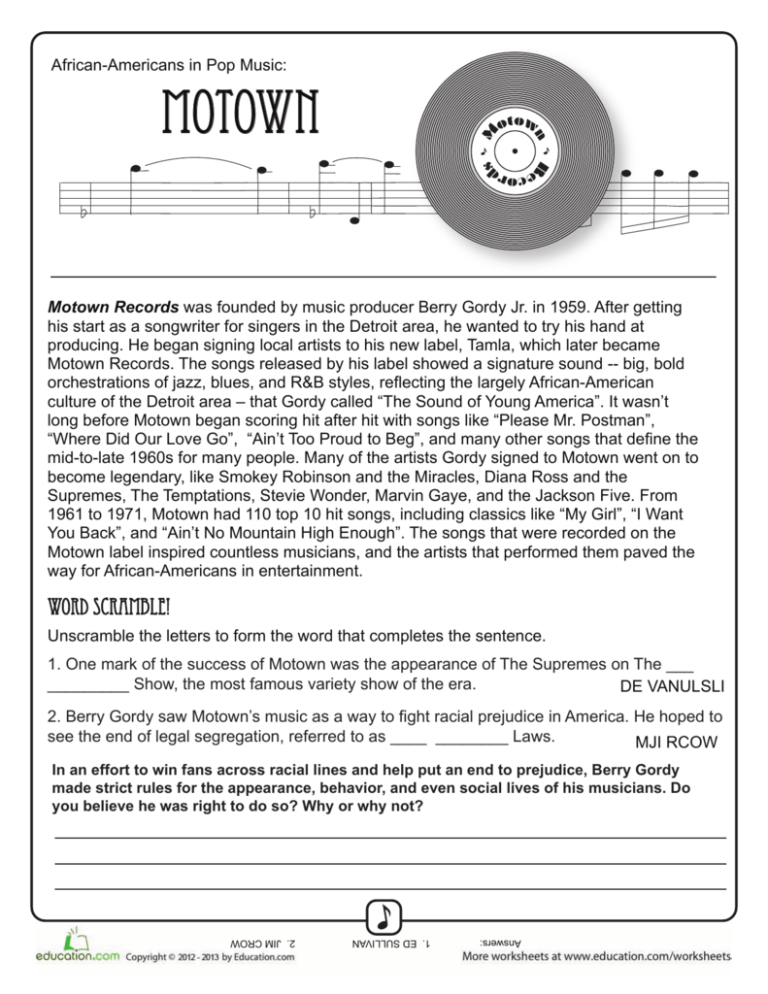
African-Americans in Pop Music: otow R s n M MOTOWN o ec rd Motown Records was founded by music producer Berry Gordy Jr. in 1959. After getting his start as a songwriter for singers in the Detroit area, he wanted to try his hand at producing. He began signing local artists to his new label, Tamla, which later became Motown Records. The songs released by his label showed a signature sound -- big, bold orchestrations of jazz, blues, and R&B styles, reflecting the largely African-American culture of the Detroit area – that Gordy called “The Sound of Young America”. It wasn’t long before Motown began scoring hit after hit with songs like “Please Mr. Postman”, “Where Did Our Love Go”, “Ain’t Too Proud to Beg”, and many other songs that define the mid-to-late 1960s for many people. Many of the artists Gordy signed to Motown went on to become legendary, like Smokey Robinson and the Miracles, Diana Ross and the Supremes, The Temptations, Stevie Wonder, Marvin Gaye, and the Jackson Five. From 1961 to 1971, Motown had 110 top 10 hit songs, including classics like “My Girl”, “I Want You Back”, and “Ain’t No Mountain High Enough”. The songs that were recorded on the Motown label inspired countless musicians, and the artists that performed them paved the way for African-Americans in entertainment. Word scramble! Unscramble the letters to form the word that completes the sentence. 1. One mark of the success of Motown was the appearance of The Supremes on The ___ _________ Show, the most famous variety show of the era. DE VANULSLI 2. Berry Gordy saw Motown’s music as a way to fight racial prejudice in America. He hoped to see the end of legal segregation, referred to as ____ ________ Laws. MJI RCOW In an effort to win fans across racial lines and help put an end to prejudice, Berry Gordy made strict rules for the appearance, behavior, and even social lives of his musicians. Do you believe he was right to do so? Why or why not? Answers: 1. ED SULLIVAN 2. JIM CROW
